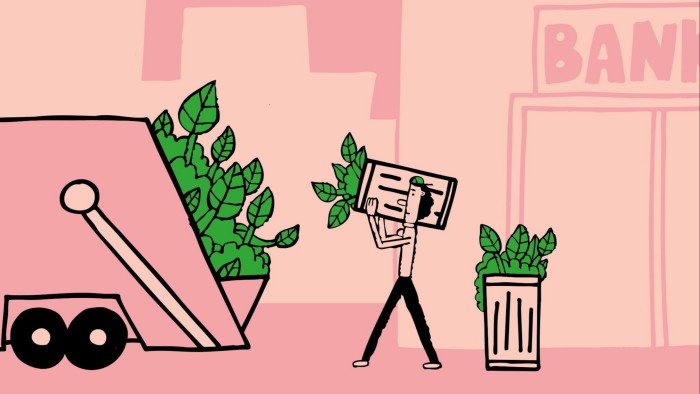Unlock the Editor’s Digest for free
Roula Khalaf, Editor of the FT, selects her favourite stories in this weekly newsletter.
Imagine lazing by a pool on a warm summer’s day and drifting off into a gentle sleep when suddenly, someone throws a bucket of iced water in your face. Then another. And another, until you are drenched, cold and very much awake.
This captures how I felt over the New Year break as I read a newly translated book about a central question of our time: why is that, even as the dangers of a warming world grow ever more alarmingly visible and even though we have known what to do for decades, the response to the gathering climate threat continues to be so inadequate?
The answer, says German sociologist Jens Beckert, is that fundamental characteristics of contemporary life — modern capitalism, liberal democracy and our attachment to consumption — make it virtually impossible to deliver what the future health of the planet requires.
For those who have been lulled like drowsy sunbathers to think otherwise, Beckert, director of the Max Planck Institute for the Study of Societies, has a confronting message.
“The necessary measures are not being taken and will not be taken,” he writes in How We Sold Our Future: The Failure to Fight Climate Change, which came out in Germany last year and has just been published in English.
Beckert’s argument is hard to ignore. Yes, as we are told daily, many politicians, investors and business executives want emissions cut, green energy boosted and the climate made safe for their children. And yes, as we see at each annual climate COP, advances are being made. But progress at anything like the speed needed is being blocked by forces central to the way modern life is ordered.
Incentives for companies to deliver profits can make it “completely rational” for executives to ignore future climate damages. Governments in turn depend on prosperous companies to deliver the tax revenues needed to fund schools and hospitals — and the broader economic growth required for re-election. Green growth might be possible, but probably not at the pace needed. De-growth, or any policy aimed at deliberately lowering living standards, is “delusional”. Green consumers exist, but their influence is minimal. And so on.
I was still digesting Beckert’s book on New Year’s eve, when two Wall Street banks bolstered his case. Citigroup and Bank of America announced they were abandoning the Net Zero Banking Alliance industry group that Goldman Sachs and Wells Fargo had already left earlier in December. More exits followed and by Tuesday this week, the six biggest US banks had all, in the space of one month, quit the climate alliance. They might still be, in Citi’s words, “committed to reaching net zero”. But they, and their shareholders, are doubtless also committed to staying financially competitive in a country whose incoming president has zero interest in climate progress, and whose Republicans allies claim net zero alliances could breach antitrust rules.
Beckert may of course be wrong. His book was published just as the FT reported electric vehicles were this year expected to outsell internal combustion cars in China for the first time, smashing international forecasts and potentially denting oil demand.
That is a sign that the long-awaited green energy transition could take off much faster than expected. Yet the operative word is “could”.
Beckert is no climate denier and does not wish his book to be read as a counsel of despair.
He hopes arguments like his will make it clear how much more urgently we need to think about adapting to life on a hotter planet, an argument that gained force last week as fires raged across the Los Angeles area.
There is also, he says, a rational case and indeed a “moral duty” for citizens to keep fighting for a meaningful response to climate change that could cushion the consequences of warming.
Business has a vital role to play here. But as he told me on the phone this week, it is pointless to expect companies to unilaterally cut their emissions and those of their suppliers no matter the cost.
“Business will only change”, he says, “if there are business models that make this lucrative for them.”
Companies, and their advertising agencies, often like to pretend this is not the case and they act because they care. But the faster the truth is recognised, the easier it will be to manage whatever the climate future holds.
Read the full article here

